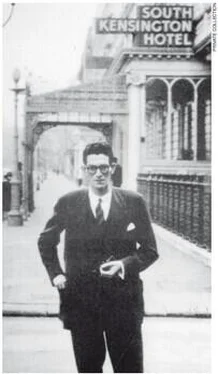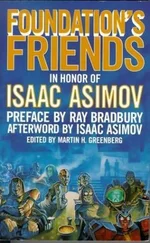Ben Macintyre - A Spy Among Friends
Здесь есть возможность читать онлайн «Ben Macintyre - A Spy Among Friends» весь текст электронной книги совершенно бесплатно (целиком полную версию без сокращений). В некоторых случаях можно слушать аудио, скачать через торрент в формате fb2 и присутствует краткое содержание. Год выпуска: 2014, ISBN: 2014, Издательство: Bloomsbury Publishing, Жанр: Старинная литература, на английском языке. Описание произведения, (предисловие) а так же отзывы посетителей доступны на портале библиотеки ЛибКат.
- Название:A Spy Among Friends
- Автор:
- Издательство:Bloomsbury Publishing
- Жанр:
- Год:2014
- ISBN:9781408851746
- Рейтинг книги:5 / 5. Голосов: 1
-
Избранное:Добавить в избранное
- Отзывы:
-
Ваша оценка:
- 100
- 1
- 2
- 3
- 4
- 5
A Spy Among Friends: краткое содержание, описание и аннотация
Предлагаем к чтению аннотацию, описание, краткое содержание или предисловие (зависит от того, что написал сам автор книги «A Spy Among Friends»). Если вы не нашли необходимую информацию о книге — напишите в комментариях, мы постараемся отыскать её.
A Spy Among Friends — читать онлайн бесплатно полную книгу (весь текст) целиком
Ниже представлен текст книги, разбитый по страницам. Система сохранения места последней прочитанной страницы, позволяет с удобством читать онлайн бесплатно книгу «A Spy Among Friends», без необходимости каждый раз заново искать на чём Вы остановились. Поставьте закладку, и сможете в любой момент перейти на страницу, на которой закончили чтение.
Интервал:
Закладка:
These were heady times in Washington, the young superpower capital suffused with wealth and self-confidence. Philby moved easily among the leaders of this new world order, a warm and reassuring presence among the Cold Warriors. Philby was not a greedy man, but he wanted for nothing. ‘If you have a lot of money,’ reflected this secret communist at the heart of capitalist power, ‘you can organise your life in a rather pleasant way.’ Philby’s life could not have been organised more pleasantly. He urged Nicholas Elliott to come and visit him. ‘The more visitors I had in Washington,’ he wrote, ‘the more spies I got my finger into.’ And Philby wanted a finger in every spy.
On the surface, Philby might appear as serene and affable as ever, but inside a small worm of anxiety was burrowing away. The twinge he had felt on learning that a Soviet spy had been located in the wartime embassy grew markedly more uncomfortable in June 1950, when the Venona decrypts revealed a ‘valuable agent network’ operating in Britain in 1945, including a ‘particularly important’ spy codenamed ‘Stanley’. The codebreakers were gaining ground every day. Philby decided to pay a visit to the US government decoding centre at Arlington Hall, Virginia. Meredith Gardner, the chief of the Venona project, welcomed Philby to his secret word-laboratory, and later recalled the strange intensity with which the Englishman had observed the decryption teams at work, picking away at the vast spy puzzle. ‘Philby was looking on with no doubt rapt attention but he never said a word, never a word.’ Philby knew that a single word, correctly identifying ‘Stanley’ as him, would be enough to sink him.
A joint investigation by the FBI and MI5 had not yet identified the spy codenamed ‘Homer’. The investigators seemed convinced that the mole in the British embassy must be a local employee, a janitor or servant, even though the quality of the information ‘Homer’ had supplied was high grade. After leaving Washington in 1948, Donald Maclean had moved on to Cairo as counsellor and head of chancery at the British embassy. His behaviour had become increasingly bizarre under the strain of his double life, yet no one imagined that this urbane, cultured English diplomat might be a spy for Russia. Maclean was the son of a former Cabinet minister, a product of public school and Cambridge, a member of the Reform Club. And so he was protected from suspicion, in Philby’s words, by the ‘genuine mental block which stubbornly resisted the belief that respected members of the establishment could do such things’. But that presumption could not shield him for ever. As the investigators dug deeper, Philby kept Moscow informed of their progress. ‘Maclean should stay in his post as long as possible,’ Moscow Centre told him, while noting that it might be necessary to extract him ‘before the net closed in’.
Philby laid out his own safety net, knowing that if the Venona decrypts unmasked Maclean then all his associates would come under suspicion and the trail, eventually, could lead to Philby himself. He discreetly hinted to MI5 that he would like to expand his role in Washington, ostensibly to improve efficiency, in reality to ensure even closer monitoring of the ‘Homer’ investigation. ‘He clearly feels he is not really getting enough scope,’ wrote Guy Liddell of MI5. ‘I thought I discerned a fly thrown over me in the form of a suggestion that it was really unnecessary for us to have a Washington representative and that he could carry the whole business.’ The counter-intelligence chief resisted Philby’s veiled offer to represent MI5 as well as MI6, though not out of any suspicion of the real motive behind it. Philby also lobbied C in London to notify him in advance of any decoding breakthrough, to ‘give us more time for studying it’; and, if necessary, more time to get away.
Philby’s marriage was under severe strain once more. The Philby clan was growing, but while Philby told Nicholas Elliott of his ‘parental pride in being the father of five children’, the arrival of another baby increased the burden on Aileen, who was again showing signs of instability. She was now drinking almost as much as her husband. Their relationship took another body blow when a letter arrived from Guy Burgess, announcing cheerily: ‘I have a shock for you. I have just been posted to Washington.’ Burgess asked to stay with the Philbys ‘for a few days’, while he looked for somewhere to live. Aileen was appalled. ‘I know him only too well,’ she wrote to friends. ‘He will never leave our house.’
Burgess was still in the Foreign Office, although how he had managed to retain employment in that staid and respectable organisation remains a mystery. In a career not so much chequered as blotched, he had worked in the news department, as assistant to the minister of state in the Foreign Office, and in the Far Eastern section. Throughout that time, he supplied the Russians with every secret document he could lay his hands on, removing them in the evening and returning them in the morning after they had been copied by the Soviets. Burgess was as entertaining as ever, and pure, undiluted trouble: he boasted about his espionage contacts, made no attempt to hide his promiscuous homosexuality, and left a trail of chaos in his wake. He was usually drunk, and frequently insulting, particularly to important people. He failed to pay his bills, picked fights, identified MI6 officers in public places and went on a bender in Gibraltar of such scale that the local MI5 officer could not help being impressed: ‘I do not think that even in Gibraltar have I ever seen anyone put away so much hard liquor in so short a time.’ On another occasion he got into a fight with a Foreign Office colleague, fell down the marble steps of the Royal Automobile Club and fractured his skull, after which his behaviour grew even more extreme. Burgess was permanently on the point of being sacked. Instead, he was appointed information officer at the British embassy in Washington, a job requiring delicacy and tact for which he was monumentally unsuited. Laughably, Guy Liddell insisted that Burgess ‘was not the sort of person who would deliberately pass confidential information to unauthorised persons’. It was hoped that Burgess’s ‘eccentricities’ (code for his homosexuality) might be less conspicuous in the US. But the Foreign Office security chief warned Sir Robert Mackenzie, the security officer at the Washington embassy, that with Burgess in town, he should be prepared for even worse escapades. Mackenzie was heard to mutter: ‘What does he mean worse ? Goats?’
If the prospect of Burgess arriving in Washington worried some officials, it positively horrified Aileen. Philby insisted, however, that his old friend must be made welcome, and could live in the basement of their house. Aileen protested, and a furious row followed, duly reported back, by both parties, to Elliott in Switzerland, who wrote: ‘Knowing the trouble that would inevitably ensue – and remembering Burgess’s drunken and homosexual orgies when he had stayed with them in Istanbul – Aileen resisted this move, but bowed in the end (and as usual) to Philby’s wishes.’ Burgess hit the US capital, and the Philby household, like a particularly destructive and volatile meteor. ‘The inevitable drunken scenes and disorder ensued,’ Elliott wrote, ‘and tested the marriage to its limits.’
Philby later depicted his decision to take in Burgess as an act of loyalty. They had been friends for more than twenty years, they had discovered communism together and remained locked in service to Moscow. Burgess was one of the few people to whom Philby could speak openly. He assured the embassy that he would ‘keep an eye’ on the renegade – a task that was virtually impossible anyway, but perhaps marginally easier with the man living under his roof. Philby had his own motive for welcoming Burgess to Washington. As information officer, Burgess would be able to travel freely without exciting comment; he could therefore act as a courier, taking information to Philby’s Soviet controller, Valeri Makayev, in New York. Soon after Burgess’s arrival, Philby told him about the hunt for ‘Homer’, and the increasing risk that Maclean might be exposed and confess all, with potentially calamitous consequences.
Читать дальшеИнтервал:
Закладка:
Похожие книги на «A Spy Among Friends»
Представляем Вашему вниманию похожие книги на «A Spy Among Friends» списком для выбора. Мы отобрали схожую по названию и смыслу литературу в надежде предоставить читателям больше вариантов отыскать новые, интересные, ещё непрочитанные произведения.
Обсуждение, отзывы о книге «A Spy Among Friends» и просто собственные мнения читателей. Оставьте ваши комментарии, напишите, что Вы думаете о произведении, его смысле или главных героях. Укажите что конкретно понравилось, а что нет, и почему Вы так считаете.












